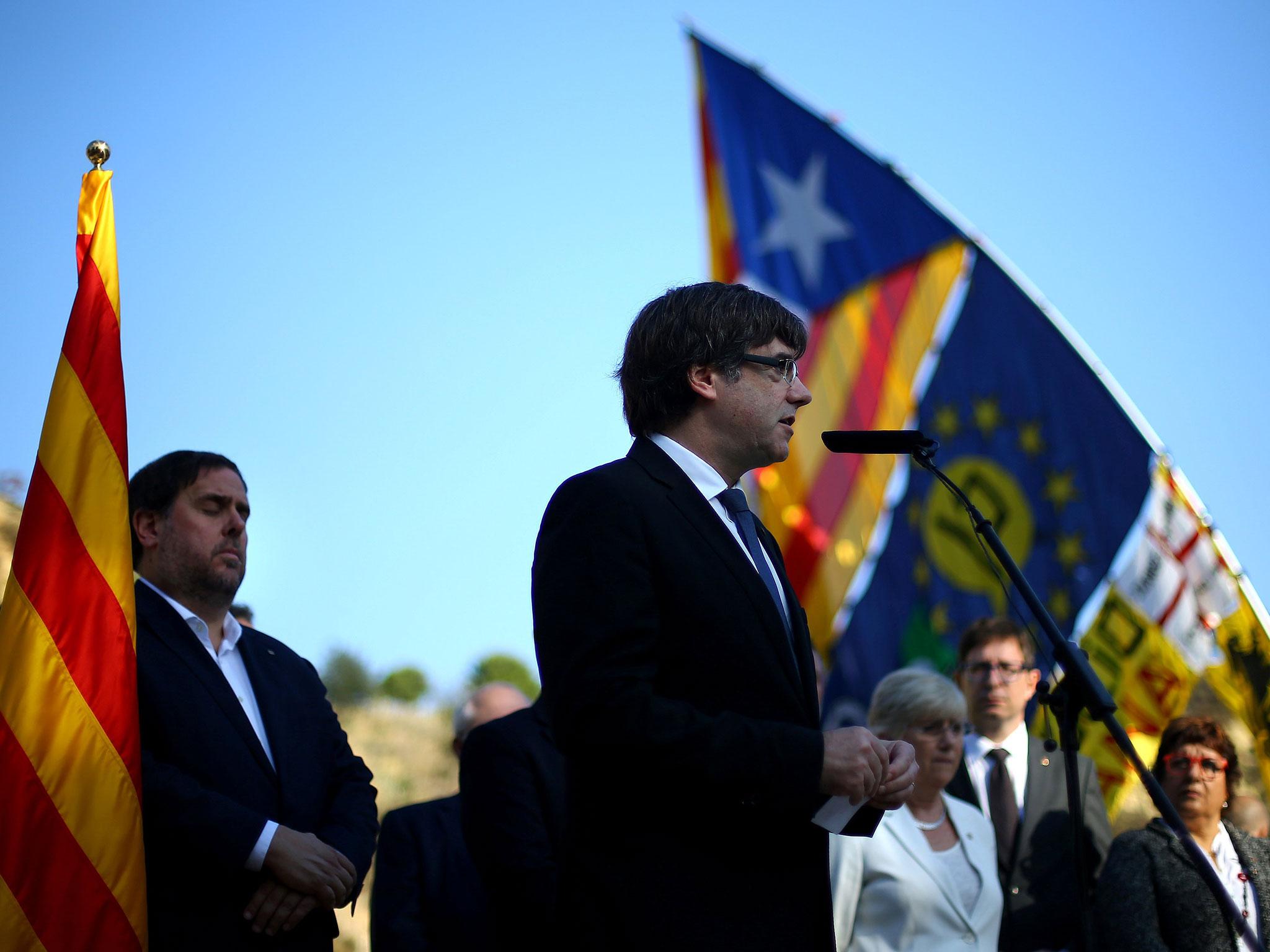Catalonia president Puigdemont says he is ready to declare independence as Spain deadline passes
Then central government announces it will trigger Article 155 and impose direct rule over region

Your support helps us to tell the story
From reproductive rights to climate change to Big Tech, The Independent is on the ground when the story is developing. Whether it's investigating the financials of Elon Musk's pro-Trump PAC or producing our latest documentary, 'The A Word', which shines a light on the American women fighting for reproductive rights, we know how important it is to parse out the facts from the messaging.
At such a critical moment in US history, we need reporters on the ground. Your donation allows us to keep sending journalists to speak to both sides of the story.
The Independent is trusted by Americans across the entire political spectrum. And unlike many other quality news outlets, we choose not to lock Americans out of our reporting and analysis with paywalls. We believe quality journalism should be available to everyone, paid for by those who can afford it.
Your support makes all the difference.Catalan leader Carles Puigdemont has threatened to explicitly declare independence if no talks are offered, in a letter to Spain's prime minister.
Minutes before a deadline to back down on the independence bid expired, Mr Puigdemont warned Mariano Rajoy that if Spain's government continued to “impede dialogue and continues its repression”, Catalonia's parliament would proceed to hold a vote on declaring independence from Spain.
The Catalan leader declared independence in an address to the regional parliament last week, but then immediately suspended it and challenged Spain to hold negotiations.
After Mr Puigdemont's letter was published, Mr Rajoy's government made an official announcement saying it will trigger Article 155 of the Constitution, which allows the central government to take control of the autonomous region.
Article 155 has not been used in the four decades since democracy was restored at the end of General Francisco Franco's dictatorship.
Catalans would consider the application of the measure an “invasion” of the region's self-government, while Spain's central authorities are portraying it as an undesired move, yet a necessary one, to restore legality after Mr Puigdemont's government pushed ahead with a banned referendum that violated the country's constitution.
More than 40 per cent of Catalonia's 5.5 million eligible voters cast ballots in the illegal 1 October referendum as police used violence to try to enforce a court order to stop it from going ahead. Opponents boycotted the vote.
Catalan officials say that hundreds of people were injured in police violence, while Spanish authorities say hundreds of police officers were also hurt and the use of force was proportional to the resistance they met.
The separatists declared an overwhelming victory despite the boycott by opponents and on the grounds that it was illegal and lacked basic guarantees such as an independent electoral board.
Spain's government has said it would be willing to hold off on applying Article 155 if the Catalan separatist leader were to call a snap regional election. But Catalan officials have ruled that out.
The Catalan government's international affairs director Raul Romeva told reporters in Brussels that Catalonia's banned 1 October secession referendum gave the region's separatist government a mandate to declare independence from pain.
PDeCAT's Pascal said that the only election on the table would be a vote to elect a constituent assembly in the next few months once the path to independence gets underway.
“We need to defend what Catalan political nationalism has created over the years,” Pascal told reporters. “We need to defend our institutions, language, culture, schools and regional police.”
Join our commenting forum
Join thought-provoking conversations, follow other Independent readers and see their replies
Comments